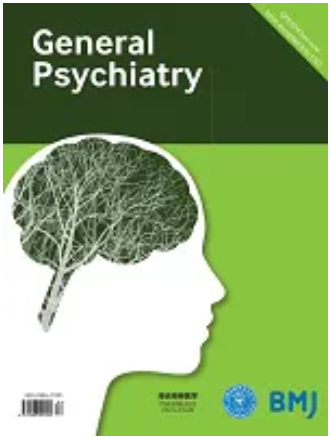中国与伊朗在成瘾医学领域的合作:机遇、挑战与战略
IF 5.3
3区 医学
Q1 PSYCHIATRY
引用次数: 0
摘要
成瘾是导致残疾和过早死亡的一个主要全球性风险因素1 ,已成为一个全球性的公共卫生和社会问题。尽管全球各国政府和研究机构投入了大量资金,但目前的成瘾医学研究仍以西方国家为中心。然而,以西方为中心的研究理论、模式和结果可能并不适用于不同的文化。中国、伊朗等非西方国家和西方国家都致力于建立适合其独特历史和文化的成瘾预防和治疗体系。为了促进全球成瘾科学的发展,必须在不带先入为主偏见的情况下增加证据的多样性。研究不同地区和文化背景下的成瘾问题,分享成功的预防和治疗模式,可以为全球成瘾科学提供更全面的视角,并有可能产生惠及所有国家的创新解决方案。中国和伊朗有着各自独特的成瘾挑战和治疗经验,已成为西方轴心以外国家成瘾研究进展的重要代表。中国和伊朗在戒毒医学方面都有着丰富的传统医学经验,这些经验都是经过数千年的反复试验而形成的。这些经验为完善戒毒治疗和预防复吸提供了宝贵的启示。传统中医药在中国已有 2000 多年的历史,在过去的两个世纪中一直被用于治疗成瘾,包括药物成瘾和非药物成瘾。传统中草药疗法针对多个系统和机制,被认为能有效缓解戒断症状,防止毒瘾复发,且副作用极小。2 3 对长期吸毒引起的身体问题也有康复作用,包括改善免疫功能和工作记忆,预防神经系统疾病。4 中国和伊朗传统医学疗法的持续应用已初步证明对西方国家的毒瘾治疗有效, ...本文章由计算机程序翻译,如有差异,请以英文原文为准。
Cooperation between China and Iran in addiction medicine: opportunities, challenges and strategies
Addiction is a major global risk factor for disability and premature death1 and has become a public health and social problem worldwide. Despite substantial investments from governments and research institutions globally, current addiction medicine research remains centred in Western countries. However, theories, models and results from western-centric research may not be applicable to different cultures. Non-Western countries such as China and Iran, and Western countries are committed to establishing addiction prevention and treatment tailored to their unique histories and cultures. To foster a global addiction science, it is important to increase the diversity of evidence without preconceived biases. Studying addiction problems across different regions and cultural backgrounds and sharing successful prevention and treatment models can provide a more comprehensive perspective for global addiction science, potentially yielding innovative solutions that benefit all countries. China and Iran have their own unique addiction challenges and treatment experiences and have become important representatives of addiction research progress in countries outside the Western axis. Both China and Iran have rich traditional medicine experiences in addiction medicine, which have been developed over thousands of years of trial and error. These offer valuable insights for refining addiction treatment and preventing relapse. Traditional Chinese medicine has a history of over 2000 years in China and has been used to treat addiction, including substance and non-substance addiction, for the past two centuries. Traditional herbal therapy, which targets multiple systems and mechanisms, is considered effective in relieving withdrawal symptoms and preventing addiction relapse with minimal side effects.2 3 It also has a rehabilitative effect on physical issues caused by long-term drug use, including improvements in immune function and working memory and the prevention of neurological diseases.4 The continuous application of traditional medical therapies in China and Iran has preliminarily proven effective in addiction treatment in Western countries, …
求助全文
通过发布文献求助,成功后即可免费获取论文全文。
去求助
来源期刊

General Psychiatry
医学-精神病学
CiteScore
21.90
自引率
2.50%
发文量
848
期刊介绍:
General Psychiatry (GPSYCH), an open-access journal established in 1959, has been a pioneer in disseminating leading psychiatry research. Addressing a global audience of psychiatrists and mental health professionals, the journal covers diverse topics and publishes original research, systematic reviews, meta-analyses, forums on topical issues, case reports, research methods in psychiatry, and a distinctive section on 'Biostatistics in Psychiatry'. The scope includes original articles on basic research, clinical research, community-based studies, and ecological studies, encompassing a broad spectrum of psychiatric interests.
 求助内容:
求助内容: 应助结果提醒方式:
应助结果提醒方式:


